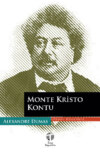Kitabı oku: «The Queen's Necklace», sayfa 15
CHAPTER XXXIII.
THE HEAD OF THE TAVERNEY FAMILY
While this was passing in the Rue St. Gilles, the elder M. Taverney was walking in his garden, followed by two footmen, who carried a chair, with which they approached him every five minutes, that he might rest. While doing so, a servant came to announce the chevalier.
"My son," said the old man, "come, Philippe, you arrive àpropos – my heart is full of happy thoughts; but how solemn you look!"
"Do I, sir?"
"You know already the results of that affair?"
"What affair?"
The old man looked to see that no one was listening, then said, "I speak of the ball."
"I do not understand."
"Oh, the ball at the Opera."
Philippe colored.
"Sit down," continued his father; "I want to talk to you. It seems that you, so timid and delicate at first, now compromise her too much."
"Whom do you mean, sir?"
"Pardieu! do you think I am ignorant of your escapade, both together at the Opera ball? It was pretty."
"Sir, I protest – "
"Oh, do not be angry; I only mean to warn you for your good. You are not careful enough; you were seen there with her."
"I was seen?"
"Pardieu! had you, or not, a blue domino?"
Philippe was about to explain that he had not, and did not know what his father meant, but he thought to himself, "It is of no use to explain to him; he never believes me. Besides, I wish to learn more."
"You see," continued the old man, triumphantly, "you were recognized. Indeed, M. de Richelieu, who was at the ball in spite of his eighty-four years, wondered who the blue domino could be with whom the queen was walking, and he could only suspect you, for he knew all the others."
"And pray how does he say he recognized the queen?"
"Not very difficult, when she took her mask off. Such audacity as that surpasses all imagination; she must really be mad about you. But take care, chevalier; you have jealous rivals to fear; it is an envied post to be favorite of the queen, when the queen is the real king. Pardon my moralizing, but I do not wish that the breath of chance should blow down what you have reared so skilfully."
Philippe rose; the conversation was hateful to him, but a kind of savage curiosity impelled him to hear everything.
"We are already envied," continued the old man; "that is natural, but we have not yet attained the height to which we shall rise. To you will belong the glory of raising our name; and now you are progressing so well, only be prudent, or you will fail after all. Soon, however, you must ask for some high post, and obtain for me a lord-lieutenancy not too far from Paris. Then you can have a peerage, and become a duke and lieutenant-general. In two years, if I am still alive – "
"Enough, enough!" groaned Philippe.
"Oh, if you are satisfied with that, I am not. You have a whole life before you; I, perhaps, only a few months. However, I do not complain; God gave me two children, and if my daughter has been useless in repairing our fortunes, you will make up for it. I see in you the great Taverney, and you inspire me with respect, for your conduct has been admirable; you show no jealousy, but leave the field apparently open to every one, while you really hold it alone."
"I do not understand you," replied Philippe.
"Oh, no modesty; it was exactly the conduct of M. Potemkin, who astonished the world with his fortunes. He saw that Catherine loved variety in her amours; that, if left free, she would fly from flower to flower, returning always to the sweetest and most beautiful; but that, if pursued, she would fly right away. He took his part, therefore; he even introduced new favorites to his sovereign, to weary her out with their number; but through and after the quickly succeeding reigns of the twelve Cæsars, as they were ironically called, Potemkin in reality was supreme."
"What incomprehensible infamies!" murmured poor Philippe. But the old man went on:
"According to his system, however, you have been still a little wrong. He never abandoned his surveillance, and you are too lax in this."
Philippe replied only by shrugging his shoulders. He really began to think his father was crazy.
"Ah! you thought I did not see your game. You are already providing a successor, for you have divined that there is no stability in the queen's amours, and in the event of her changing, you wish not to be quite thrown aside; therefore you make friends with M. de Charny, who might otherwise, when his turn comes, exile you, as you now might MM. de Coigny, Vaudreuil, and others."
Philippe, with an angry flush, said:
"Once more, enough; I am ashamed to have listened so long. Those who say that the Queen of France is a Messalina are criminal calumniators."
"I tell you," said the old man, "no one can hear, and I approve your plan. M. de Charny will repay your kindness some day."
"Your logic is admirable, sir; and M. de Charny is so much my favorite that I have just passed my sword through his ribs."
"What!" cried the old man, somewhat frightened at his son's flashing eyes, "you have not been fighting?"
"Yes, sir; that is my method of conciliating my successors. And he turned to go away.
"Philippe, you jest."
"I do not, sir."
The old man rose, and tottered off to the house.
"Quick," said he to the servant; "let a man on horseback go at once and ask after M. de Charny, who has been wounded, and let him be sure to say he comes from me." Then he murmured to himself, "Mine is still the only head in the family."
CHAPTER XXXIV.
THE STANZAS OF M. DE PROVENCE
While these events were passing in Paris and in Versailles, the king, tranquil as usual, sat in his study, surrounded by maps and plans, and traced new paths for the vessels of La Pérouse.
A slight knock at his door roused him from his study, and a voice said, "May I come in, brother?"
"The Comte de Provence," growled the king, discontentedly. "Enter."
A short person came in.
"You did not expect me, brother?" he said.
"No, indeed."
"Do I disturb you?"
"Have you anything particular to say?"
"Such a strange report – "
"Oh, some scandal?"
"Yes, brother."
"Which has amused you?"
"Because it is so strange."
"Something against me?"
"Should I laugh if it were?"
"Then against the queen?"
"Sire, imagine that I was told quite seriously that the queen slept out the other night."
"That would be very sad if it were true," replied the king.
"But it is not true, is it?"
"No."
"Nor that the queen was seen waiting outside the gate at the reservoirs?"
"No."
"The day, you know, that you ordered the gates to be shut at eleven o'clock?"
"I do not remember."
"Well, brother, they pretend that the queen was seen arm-in-arm with M. d'Artois at half-past twelve that night."
"Where?"
"Going to a house which he possesses behind the stables. Has not your majesty heard this report?"
"Yes, you took care of that."
"How, sire? – what have I done?"
"Some verses which were printed in the Mercury."
"Some verses!" said the count, growing red.
"Oh, yes; you are a favorite of the Muses."
"Not I, sire."
"Oh, do not deny it; I have the manuscript in your writing! Now, if you had informed yourself of what the queen really did that day, instead of writing these lines against her, and consequently against me, you would have written an ode in her favor. Perhaps the subject does not inspire you; but I should have liked a bad ode better than a good satire."
"Sire, you overwhelm me; but I trust you will believe I was deceived, and did not mean harm."
"Perhaps."
"Besides, I did not say I believed it; and then, a few verses are nothing. Now, a pamphlet like one I have just seen – "
"A pamphlet?"
"Yes, sire; and I want an order for the Bastile for the author of it."
The king rose. "Let me see it," he said.
"I do not know if I ought."
"Certainly you ought. Have you got it with you?"
"Yes, sire;" and he drew from his pocket "The History of the Queen Etteniotna," one of the fatal numbers which had escaped from Philippe and Charny.
The king glanced over it rapidly. "Infamous!" he cried.
"You see, sire, they pretend the queen went to M. Mesmer's."
"Well, she did go."
"She went?"
"Authorized by me."
"Oh, sire!"
"That is nothing against her; I gave my consent."
"Did your majesty intend that she should experimentalize on herself?"
The king stamped with rage as the count said this; he was reading one of the most insulting passages – the history of her contortions, voluptuous disorder, and the attention she had excited.
"Impossible!" he cried, growing pale; and he rang the bell. "Oh, the police shall deal with this! Fetch M. de Crosne."
"Sire, it is his day for coming here, and he is now waiting."
"Let him come in."
"Shall I go, brother?" said the count.
"No; remain. If the queen be guilty, you are one of the family, and must know it; if innocent, you, who have suspected her, must hear it."
M. de Crosne entered, and bowed, saying, "The report is ready, sire."
"First, sir," said the king, "explain how you allow such infamous publications against the queen."
"Etteniotna?" asked M. de Crosne.
"Yes."
"Well, sire, it is a man called Reteau."
"You know his name, and have not arrested him!"
"Sire, nothing is more easy. I have an order already prepared in my portfolio."
"Then why is it not done?"
M. de Crosne looked at the count.
"I see, M. de Crosne wishes me to leave," said he.
"No," replied the king, "remain. And you, M. de Crosne, speak freely."
"Well, sire, I wished first to consult your majesty whether you would not rather give him some money, and send him away to be hanged elsewhere."
"Why?"
"Because, sire, if these men tell lies, the people are glad enough to see them whipped, or even hanged; but if they chance upon a truth – "
"A truth! It is true that the queen went to M. Mesmer's, but I gave her permission."
"Oh, sire!" cried M. de Crosne.
His tone of sincerity struck the king more than anything M. de Provence had said; and he answered, "I suppose, sir, that was no harm."
"No, sire; but her majesty has compromised herself."
"M. de Crosne, what have your police told you?"
"Sire, many things, which, with all possible respect for her majesty, agree in many points with this pamphlet."
"Let me hear."
"That the queen went in a common dress, in the middle of this crowd, and alone."
"Alone!" cried the king.
"Yes, sire."
"You are deceived, M. de Crosne."
"I do not think so, sire."
"You have bad reporters, sir."
"So exact, that I can give your majesty a description of her dress, of all her movements, of her cries – "
"Her cries!"
"Even her sighs were observed, sire."
"It is impossible she could have so far forgotten what is due to me and to herself."
"Oh, yes," said the Comte de Provence; "her majesty is surely incapable – "
Louis XVI. interrupted him. "Sir," said he, to M. de Crosne, "you maintain what you have said?"
"Unhappily, yes, sire."
"I will examine into it further," said the king, passing his handkerchief over his forehead, on which the drops hung from anxiety and vexation. "I did permit the queen to go, but I ordered her to take with her a person safe, irreproachable, and even holy."
"Ah," said M. de Crosne, "if she had but done so – "
"Yes," said the count; "if a lady like Madame de Lamballe for instance – "
"It was precisely she whom the queen promised to take."
"Unhappily, sire, she did not do so."
"Well," said the king, with agitation; "if she has disobeyed me so openly I ought to punish, and I will punish; only some doubts still remain on my mind; these doubts you do not share; that is natural; you are not the king, husband, and friend of her whom they accuse. However, I will proceed to clear the affair up." He rang. "Let some one see," said he to the person who came, "where Madame de Lamballe is."
"Sire, she is walking in the garden with her majesty and another lady."
"Beg her to come to me. Now, gentlemen, in ten minutes we shall know the truth."
All were silent.
M. de Crosne was really sad, and the count put on an affectation of it which might have solemnized Momus himself.
CHAPTER XXXV.
THE PRINCESS DE LAMBALLE
The Princesse de Lamballe entered beautiful and calm. Her hair drawn back from her noble forehead, her dark penciled eyebrows, her clear blue eyes and beautiful lips, and her unrivaled figure, formed a lovely tout ensemble. She seemed always surrounded by an atmosphere of virtue and grace.
The king looked at her with a troubled expression, dreading what he was about to hear; then bowing, said, "Sit down, princess."
"What does your majesty desire?" asked she, in a sweet voice.
"Some information, princess: what day did you last go with the queen to Paris?"
"Wednesday, sire."
"Pardon me, cousin," said Louis XVI.; "but I wish to know the exact truth."
"You will never hear anything else from me, sire."
"What did you go there for?"
"I went to M. Mesmer's, Place Vendôme."
The two witnesses trembled. The king colored with delight.
"Alone?" asked the king.
"No, sire; with the queen."
"With the queen?" cried Louis, seizing her hand.
"Yes, sire."
M. de Provence and M. de Crosne looked stupefied.
"Your majesty had authorized the queen to go; at least, so she told me," continued the princess.
"It was true, cousin: gentlemen, I breathe again; Madame de Lamballe never tells a falsehood."
"Never, sire."
"Oh, never, sire," said M. de Crosne, with perfect sincerity. "But will you permit me, sire?"
"Certainly, monsieur; question, search as much as you please; I place the princess at your disposal."
Madame de Lamballe smiled. "I am ready," she said.
"Madame," said the lieutenant of police, "have the goodness to tell his majesty what you did there, and how the queen was dressed."
"She had on a dress of gray taffeta, a mantle of embroidered muslin, an ermine muff, and a rose-colored velvet bonnet, trimmed with black."
M. de Crosne looked astonished. It was a totally different dress from that which he had had described to him. The Comte de Provence bit his lips with vexation, and the king rubbed his hands.
"What did you do on entering?" asked he.
"Sire, you are right to say on entering, for we had hardly entered the room – "
"Together?"
"Yes, sire; and we could scarcely have been seen, for every one was occupied with the experiments going on, when a lady approached the queen, and, offering her a mask, implored her to turn back."
"And you stopped?"
"Yes, sire."
"You never went through the rooms?" asked M. de Crosne.
"No, monsieur."
"And you never quitted the queen?" asked the king.
"Not for a moment, sire. Her majesty never left my arm."
"Now!" cried the king, "what do you say, M. de Crosne? and you, brother?"
"It is extraordinary, quite supernatural," said the count, who affected a gaiety which could not conceal his disappointment.
"There is nothing supernatural," said M. de Crosne, who felt real remorse: "what Madame de Lamballe says is undoubtedly true; therefore my informants must have been mistaken."
"Do you speak seriously, sir?" asked the count.
"Perfectly, monseigneur. Her majesty did what Madame de Lamballe states, and nothing more, I feel convinced; my agents were, somehow or other, deceived. As for this journalist, I will immediately send the order for his imprisonment."
Madame de Lamballe looked from one to the other with an expression of innocent curiosity.
"One moment," said the king; "you spoke of a lady who came to stop you; tell us who she was?"
"Her majesty seemed to know her, sire."
"Because, cousin, I must speak to this person; then we shall learn the key to this mystery."
"That is my opinion also, sire," said M. de Crosne.
"Did the queen tell you that she knew this person?" said the count.
"She told me so, monseigneur."
"My brother means to say that you probably know her name."
"Madame de la Motte Valois."
"That intriguer!" cried the king.
"Diable!" said the count; "she will be difficult to interrogate: she is cunning."
"We will be as cunning as she," said M. de Crosne.
"I do not like such people about the queen," said Louis; "she is so good that all the beggars crowd round her."
"Madame de la Motte is a true Valois," said the princess.
"However that may be, I will not see her here. I prefer depriving myself of the pleasure of hearing the queen's innocence confirmed, to doing that."
"But you must see her, sire," said the queen, entering at that moment, pale with anger, beautiful with a noble indignation. "It is not now for you to say, 'I do, or I do not wish to see her.' She is a witness from whom the intelligence of my accusers," said she, looking at her brother-in-law, "and the justice of my judges," turning to the king and M. de Crosne, "must draw the truth. I, the accused, demand that she be heard."
"Madame," said the king, "we will not do Madame de la Motte the honor of sending for her to give evidence either for or against you. I cannot stake your honor against the veracity of this woman."
"You need not send for her, she is here."
"Here!" cried the king.
"Sire, you know I went to see her one day; that day of which so many things were said," and she looked again at the Comte de Provence, who felt ready to sink through the ground; "and I then dropped at her house a box, containing a portrait, which she was to return to me to-day, and she is here."
"No, no," said the king; "I am satisfied, and do not wish to see her."
"But I am not satisfied, and shall bring her in. Besides, why this repugnance? What has she done? If there be anything, tell me; you, M. de Crosne? you know everything."
"I know nothing against this lady," replied he.
"Really?"
"Certainly not; she is poor, and perhaps ambitious, but that is all."
"If there be no more than that against her, the king can surely admit her."
"I do not know why," said Louis; "but I have a presentiment that this woman will be the cause of misfortune to me."
"Oh! sire, that is superstition; pray fetch her, Madame de Lamballe."
Five minutes after, Jeanne, with a timid air, although with a distinguished appearance, entered the room.
Louis XVI., strong in his antipathies, had turned his back towards her, and was leaning his head on his hands, seeming to take no longer a part in the conversation. The Comte de Provence cast on her a look which, had her modesty been real, would have increased her confusion; but it required much more than that to trouble Jeanne.
"Madame," said the queen, "have the goodness to tell the king exactly what passed the other day at M. Mesmer's."
Jeanne did not speak.
"It requires no consideration," continued the queen; "we want nothing but the simple truth."
Jeanne understood immediately that the queen had need of her, and knew that she could clear her in a moment by speaking the simple truth; but she felt inclined to keep her secret.
"Sire," said she, "I went to see M. Mesmer from curiosity, like the rest of the world. The spectacle appeared to me rather a coarse one; I turned and suddenly saw her majesty entering, whom I had already had the honor of seeing, but without knowing her till her generosity revealed her rank. It seemed to me that her majesty was out of place in this room, where much suffering and many ridiculous exhibitions were going on. I beg pardon for having taken it on myself to judge; it was a woman's instinct, but I humbly beg pardon if I passed the bounds of proper respect." She seemed overcome with emotion as she concluded.
Every one but the king was pleased.
Madame de Lamballe thought her conduct delicate, and herself timid, intelligent, and good.
The queen thanked her by a look.
"Well," she said, "you have heard, sire."
He did not move, but said, "I did not need her testimony."
"I was told to speak," said Jeanne timidly, "and I obeyed."
"It is enough," answered he; "when the queen says a thing she needs no witnesses to confirm her; and when she has my approbation, and she has it, she need care for that of no one else."
He cast an overwhelming look on his brother, and kissing the hands of the queen and the princess, and begging pardon of the latter for having disturbed her for nothing, made a very slight bow to Jeanne.
The ladies then left the room.
"Brother," said Louis to the count, "now I will detain you no longer; I have work to do with M. de Crosne. You have heard your sister's complete justification, and it is easy to see you are as pleased as myself. Pray sit down, M. de Crosne."










